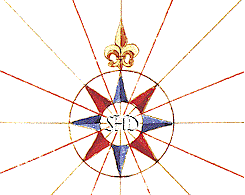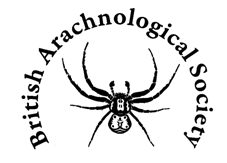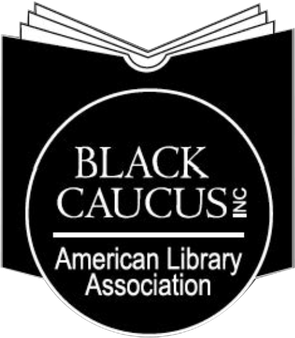Related Research Articles
The American Library Association (ALA) is a nonprofit organization based in the United States that promotes libraries and library education internationally. It is the oldest and largest library association in the world, with 49,727 members as of 2021.
The Chartered Institute of Library and Information Professionals, since 2017 branded CILIP: The library and information association, is a professional body for librarians, information specialists and knowledge managers in the United Kingdom. It was established in 2002 as a merger of the Library Association and the Institute of Information Scientists (IIS).

The Medical Library Association (MLA) is a nonprofit educational organization with more than 3,400 health sciences information professional members.
The International Federation of Library Associations and Institutions (IFLA) is the leading international body representing the interests of people who rely on libraries and information professionals. An independent, non-governmental, not-for-profit organization, IFLA was founded in Scotland in 1927 and maintains headquarters at the National Library of the Netherlands in The Hague. IFLA sponsors the annual IFLA World Library and Information Congress, promoting universal and equitable access to information, ideas, and works of imagination for social, educational, cultural, democratic, and economic empowerment. IFLA also produces several publications, including IFLA Journal.

Elonnie J. Josey was an African-American activist and librarian. Josey was the first chair of the Black Caucus of the American Library Association, having been instrumental in its formation in 1970; served as president of the American Library Association from 1984 to 1985; and was the author of over 400 books and other publications.

A school library is a library within a school where students, staff, and often, parents of a public or private school have access to a variety of resources. The goal of the school library media center is to ensure that all members of the school community have equitable access "to books and reading, to information, and to information technology." A school library media center "uses all types of media... is automated, and utilizes the Internet [as well as books] for information gathering." School libraries are distinct from public libraries because they serve as "learner-oriented laboratories which support, extend, and individualize the school's curriculum... A school library serves as the center and coordinating agency for all material used in the school."
The Society for Ethnomusicology is, with the International Council for Traditional Music and the British Forum for Ethnomusicology, one of three major international associations for ethnomusicology. Its mission is "to promote the research, study, and performance of music in all historical periods and cultural contexts."
American Libraries is the flagship magazine of the American Library Association (ALA).

Michigan State University Libraries is the academic library system of Michigan State University in East Lansing, Michigan, United States. The library system comprises nine branch locations including the Main Library. As of 2015-16, the MSU Libraries ranked 26th among U.S. and Canadian research libraries by number of volumes and 11th among U.S. and Canadian research libraries by number of titles held.

The British Cave Research Association (BCRA) is a speleological organisation in the United Kingdom. Its object is to promote the study of caves and associated phenomena, and it attains this by supporting cave and karst research, encouraging original exploration, collecting and publishing speleological information, maintaining a library and organising educational and scientific conferences and meetings.
Africana: The Encyclopedia of the African and African-American Experience edited by Henry Louis Gates and Anthony Appiah is a compendium of Africana studies including African studies and the "Pan-African diaspora" inspired by W. E. B. Du Bois' project of an Encyclopedia Africana. Du Bois envisioned "an Encyclopedia Africana," which was to be "unashamedly Afro-Centric but not indifferent to the impact of the outside world."

Library science is an interdisciplinary or multidisciplinary field that applies the practices, perspectives, and tools of management, information technology, education, and other areas to libraries; the collection, organization, preservation, and dissemination of information resources; and the political economy of information. Martin Schrettinger, a Bavarian librarian, coined the discipline within his work (1808–1828) Versuch eines vollständigen Lehrbuchs der Bibliothek-Wissenschaft oder Anleitung zur vollkommenen Geschäftsführung eines Bibliothekars. Rather than classifying information based on nature-oriented elements, as was previously done in his Bavarian library, Schrettinger organized books in alphabetical order. The first American school for library science was founded by Melvil Dewey at Columbia University in 1887.
The American Indian Library Association (AILA) is an affiliate of the American Library Association (ALA), and is a membership action group that focuses on the library-related needs of American Indians and Alaska Natives. The organization's members consist of both individuals and institutions that are interested in improving library services to Native American people in any type of library in the United States.

Society for the History of Discoveries, founded in 1960, is an international, United States-based, organization formed to stimulate interest in teaching, research, and publishing the history of geographical exploration. Its members include those from several academic disciplines as well as archivists, non-affiliated scholars, and laypersons with an interest in history. SHD advances its goals by organizing annual meetings at which pertinent scholarly research papers are presented, by publishing a scholarly journal with articles on geographic exploration, and by annually offering an award to student research papers in the field. The Society is a US non-profit 501(c)(3) organization administered by a voluntary and unpaid team of council members and officers. Membership is open to all who have an interest in the history of geographical exploration. It publishes a semiannual journal, Terrae Incognitae.

The British Arachnological Society (BAS) is the UK’s first body devoted exclusively to the study of arachnids. The primary objectives of the Society are to encourage interest in arachnology in people of all ages and to generate, promote and disseminate arachnological knowledge and understanding by all suitable means. In particular, it works to foster co-operation between amateur and professional arachnologists.
The Southeastern Library Association (SELA) is an organization that collaborates with different library associations within the Southeastern United States, including Alabama, Arkansas, Florida, Georgia, Kentucky, Louisiana, Mississippi, North Carolina, South Carolina, Tennessee, Virginia, and West Virginia.

The Virginia Library Association(VLA) is a nonprofit organization whose purpose is "to develop, promote, and improve library and information services, library staff, and the profession of librarianship in order to advance literacy and learning and to ensure access to information in the Commonwealth of Virginia." The VLA is divided into six regions. It maintains the VLA Jobline, a list of jobs available in libraries throughout the Commonwealth of Virginia.

The Black Caucus of the American Library Association (BCALA) is an affiliate of the American Library Association (ALA) that focuses on the needs of African American library professionals by promoting careers in librarianship, funding literacy initiatives, and providing scholarships.
NASIG is an independent professional association of librarians and academic publishing professionals, working to advance and transform the management of information resources in all formats and business models, with an emphasis on scholarly communications, serials and electronic resources. Founded in 1985, NASIG is registered in the state of New York as a 501(c)(3) non-profit organization.
The Zimbabwe Library Association (ZimLA) is an association that represents library, records, archives and information professionals in Zimbabwe. Membership for those who wish to join the association is voluntary.
References
- 1 2 Wilson, Marion Frank (October 1999). "From the Editor". Africana Libraries Newsletter. 100: 1. Archived from the original on 2019-03-15.
- 1 2 Lauer, Joseph J. (July 1999). "AFRICANA LIBRARIES NEWSLETTER" (PDF). Africana Libraries Newsletter. 99: 1.